
Attention: Potential spoilers for Doctor Who season 15, episode 2 titled “Lux.”
In the universe of Doctor Who, a collection of powerful deities called The Pantheon has made an appearance, and some of them have engaged in battles with the Doctor. Although he hasn’t interacted with every member of this celestial group, those he has encountered presented distinct challenges that demanded inventive resolutions. During the Doctor Who era under Disney, The Pantheon emerged as a significant storyline, while returning showrunner Russell T. Davies drew on the program’s extensive history to create an ensemble of antagonists.
In other words, it’s challenging to create a comprehensive list of the Pantheon because some Gods have only been referenced, not fully depicted. The appearance of Sutekh at the end of Doctor Who season 14 suggests that traditional franchise antagonists have been incorporated into the Pantheon. However, there are numerous new Gods introduced during Ncuti Gatwa’s tenure as the Fifteenth Doctor. Despite this, Davies explores both contemporary and classic Doctor Who episodes, as well as spinoffs, to identify potential members for the Pantheon.
The Mara, God Of Beasts
This classic-era Doctor Who villain is most commonly associated with its serpentine form

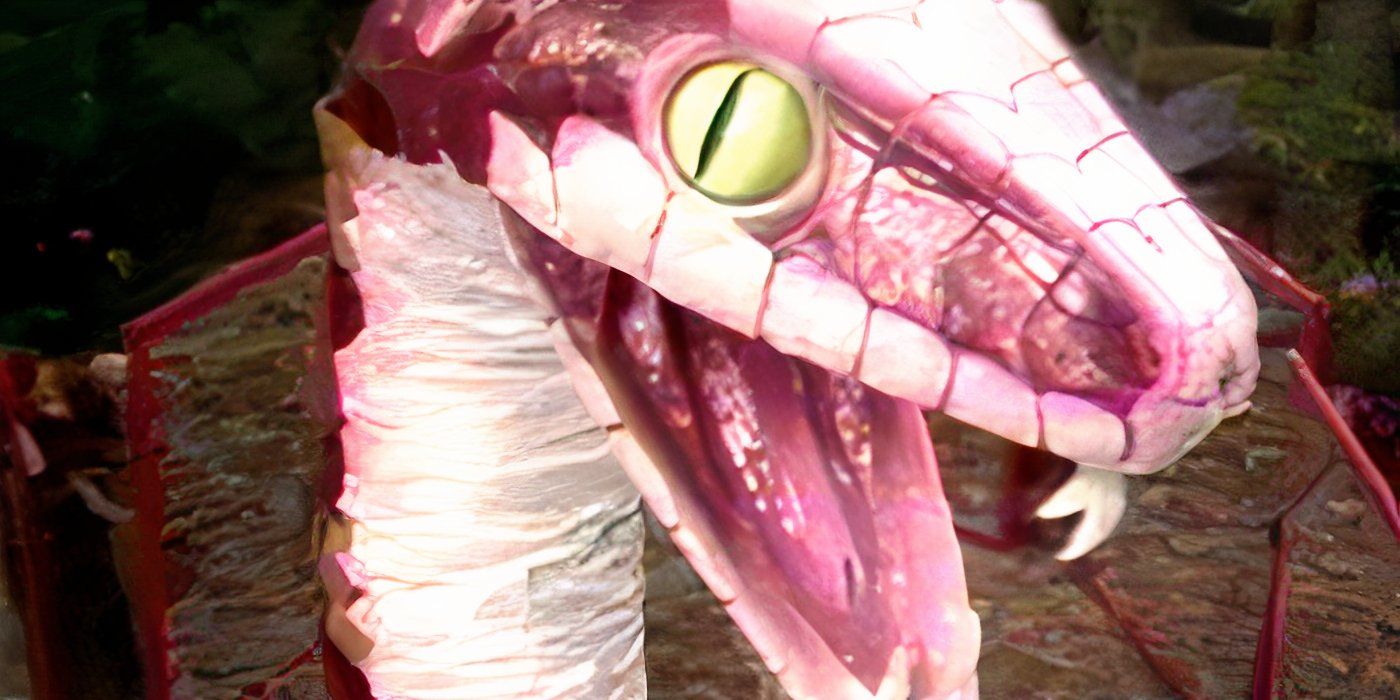

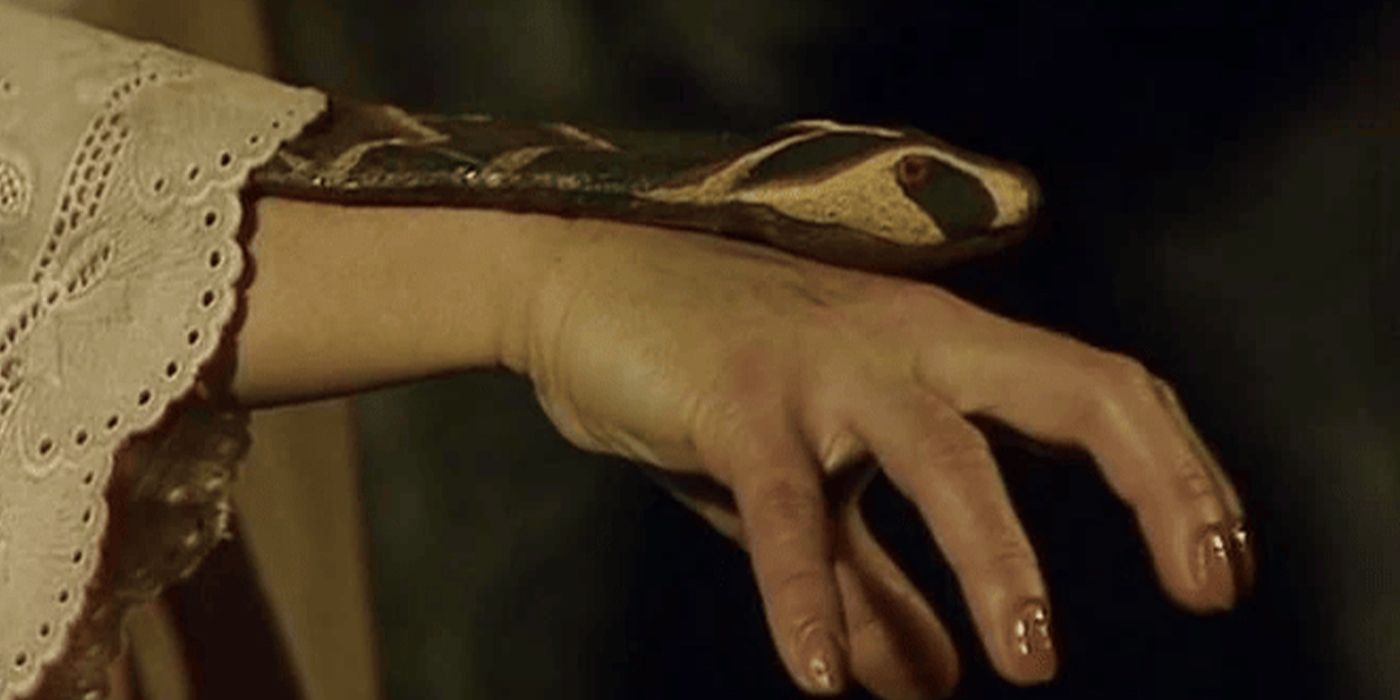
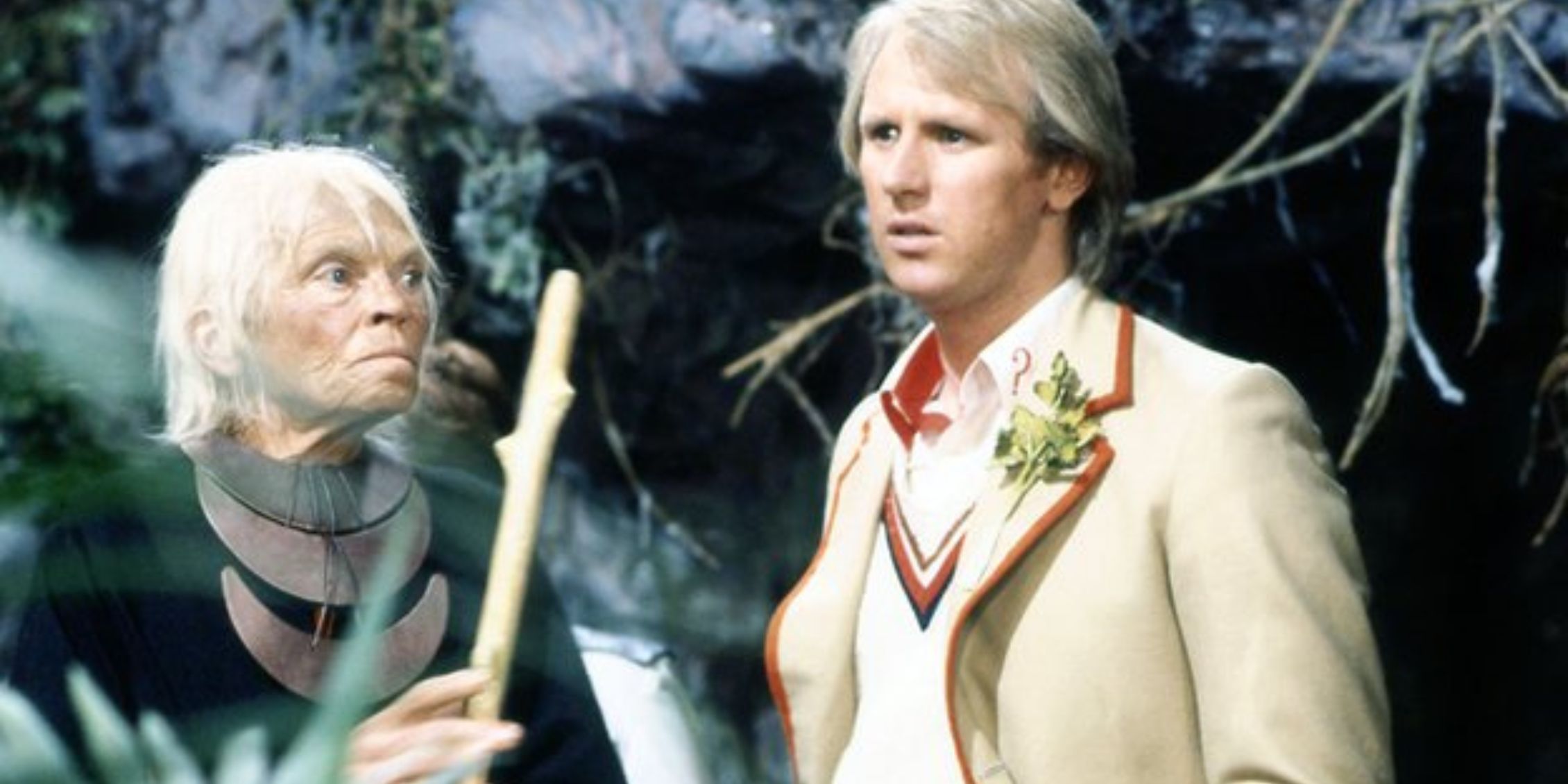
Initially appearing in the 1982 series “Kinda”, the character known as Mara recurred across the franchise in various audio productions and other media formats. At first, the Mara was a formidable enemy of the Fifth Doctor (Peter Davison). This villain was strikingly unusual, yearning for a physical body despite primarily existing in a non-physical state. Every tale featuring the Mara is marked by a surreal quality, yet the Doctor has consistently emerged victorious in their encounters.
In the classic vein of ‘Doctor Who’, overcoming the Mara usually involves mirrors, crystals, and delving into subconscious realms. While this entity indeed poses a danger to the Doctor and their comrades, it’s never a swift confrontation when they meet. However, compared to other formidable characters within the Pantheon, it’s arguably one of the less difficult battles for the Doctor.
The Trickster, God Of Traps
This Pantheon God made its debut in a Doctor Who spinoff
In his exploration of the mythos of ‘The Sarah Jane Adventures’, no longer a spinoff, Davies discovered the character known as the Trickster, played by Paul Marc Davis. Originally part of an organization called the “Pantheon”, it appears that the second half of its name, “Discord,” has been revised or reconsidered in more recent storytelling since the 2009 episode where Davis’ character made his appearance. Despite being a recurring figure in the series, it wasn’t until ‘The Wedding of Sarah Jane Smith’ that David Tennant’s Tenth Doctor joined the fight to counteract the mischief wrought by Davis’ cunning persona.
From his position within the Pantheon, it’s well-known that the Trickster is famously cunning. Deceit is his preferred method, though his scheme to replace Sarah Jane (Elisabeth Sladen) as Earth’s guardian is intricate, when simpler approaches might have sufficed. This implies that he primarily manipulates and persuades rather than exerting direct control over the physical world. The Trickster shows immense potential, but the Doctor outwits him easily.
Maestro, God Of Music
The child of the Toymaker makes a subtle change that proves very destructive





In the second episode of season 14, titled “The Devil’s Chord,” Jinkx Monsoon’s character, Maestro, made his first appearance in the series Doctor Who. Similar to other deities within the Pantheon, Maestro’s main objective is closely linked to his title as the God of Music. Essentially, Maestro corrupts humanity’s love for music, leading to an escalation of tension and ultimately, violence among humans. This minor alteration in Earth’s musical history results in a nuclear catastrophe, leaving only the haunting sounds of the ravaged planet, known as aeolian tones, to continue resonating as the sole music source. Maestro aims to replicate this disaster across the universe, but The Fifteenth narrowly thwarts his plans.
In an unusual turn of events, battling a villain with music might not be the norm for Doctor Who, but the Pantheon Gods aren’t your typical foes either. Assisted by Ruby Sunday (Millie Gibson), Fifteen managed to weaken, though not completely vanquish, Maestro through the simple use of a piano. However, the fact that the Doctor and his companion were ultimately rescued by the musical prowess of John Lennon (Chris Mason) and Paul McCartney (George Caple) suggests that Maestro is an exceptional case – a God that the Time Lord was unable to vanquish. Such villains who elude the Doctor’s defeat are scarce.
Lux Imperator, God Of Light
Mr. Ring-a-Ding is more powerful than he looks
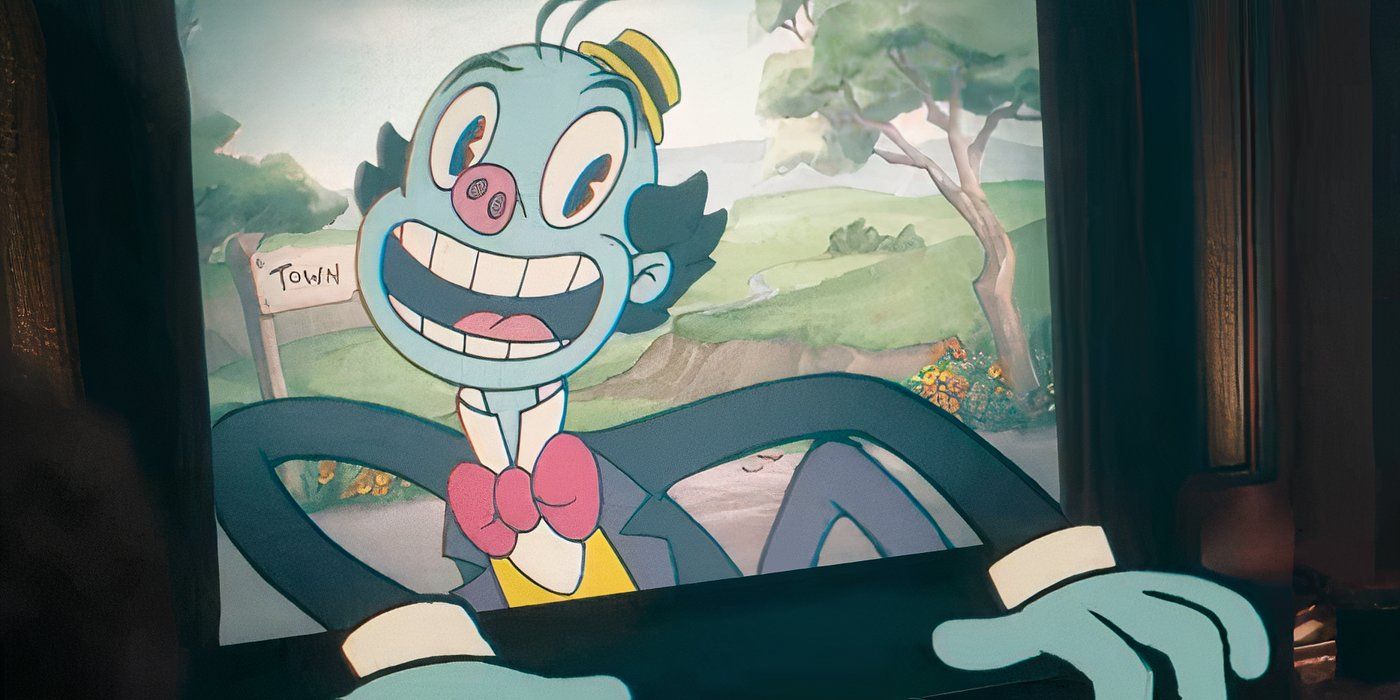




In the role of Mr. Ring-a-Ding, an in-show animated character, Alan Cumming first appeared as Lux Imperator in the fifteenth season of Doctor Who, episode 2, titled “Lux.” This marked a remarkable journey for characters Fifteen and Belinda Chandra (played by Varada Sethu) that involved breaking the fourth wall. Lux’s unique ability to control light expanded his powers to a chilling breadth, venturing into the realm of modifying reality itself. He even placed the Doctor in direct contact with Doctor Who fans, establishing a new level of meta-narrative for the show.
The scariest aspect of Lux lies in its capacity to siphon the Doctor’s regeneration power. If Lux had succeeded in completing his transformation and solidifying a stronger physical form, he might have exited the cinema and unleashed chaos that even the Doctor might struggle to contain. Similar to Maestro, the Doctor was rendered impotent by Lux, leaving Belinda as the only hope. The God of Light’s “weakness” of being too bright could be seen as far-fetched, but it becomes clearer following the Doctor’s analogy of humans drowning in water.
The Toymaker, God Of Games
2023’s “The Giggle” was this villain’s first TV appearance since 1966
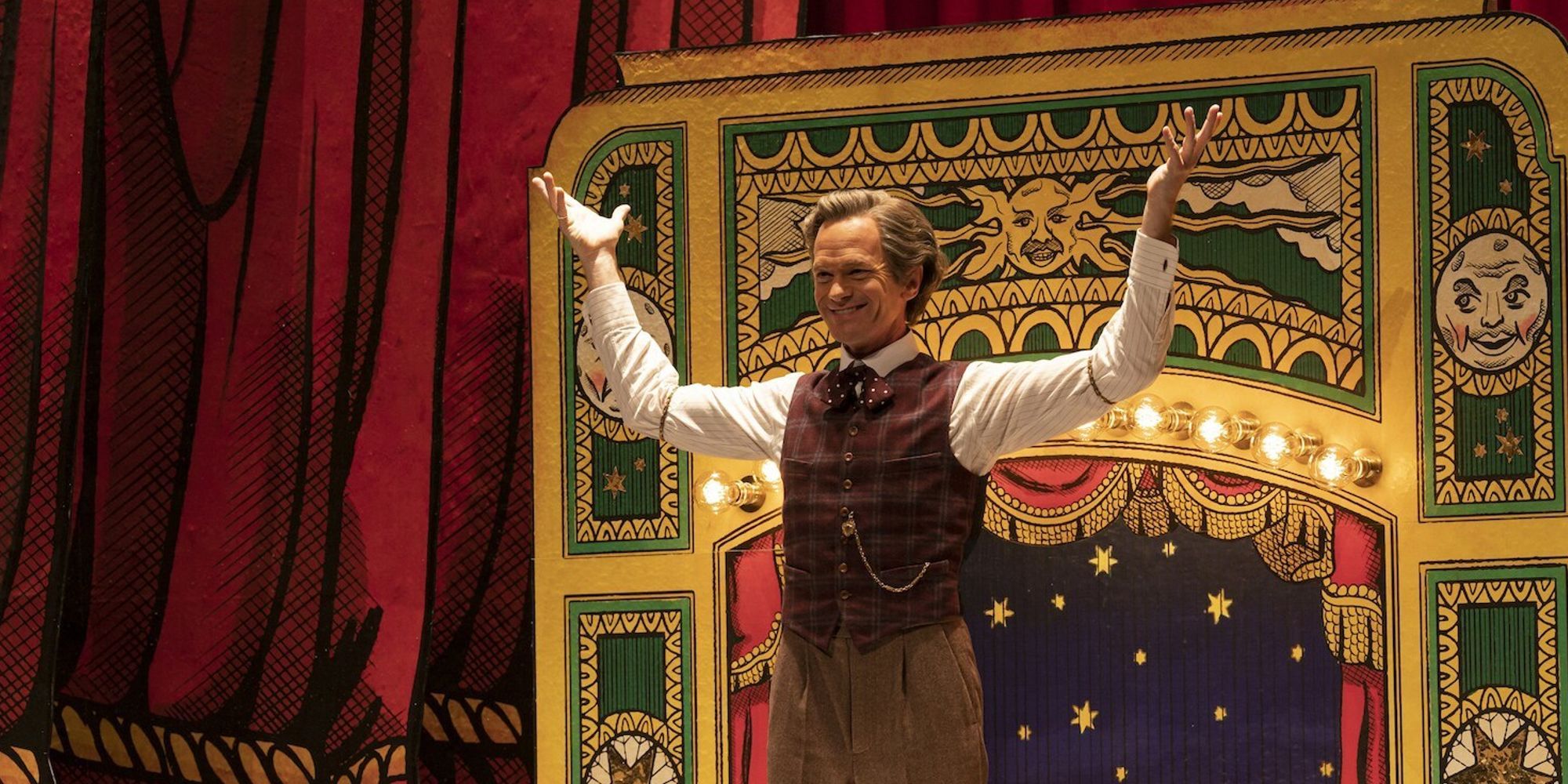



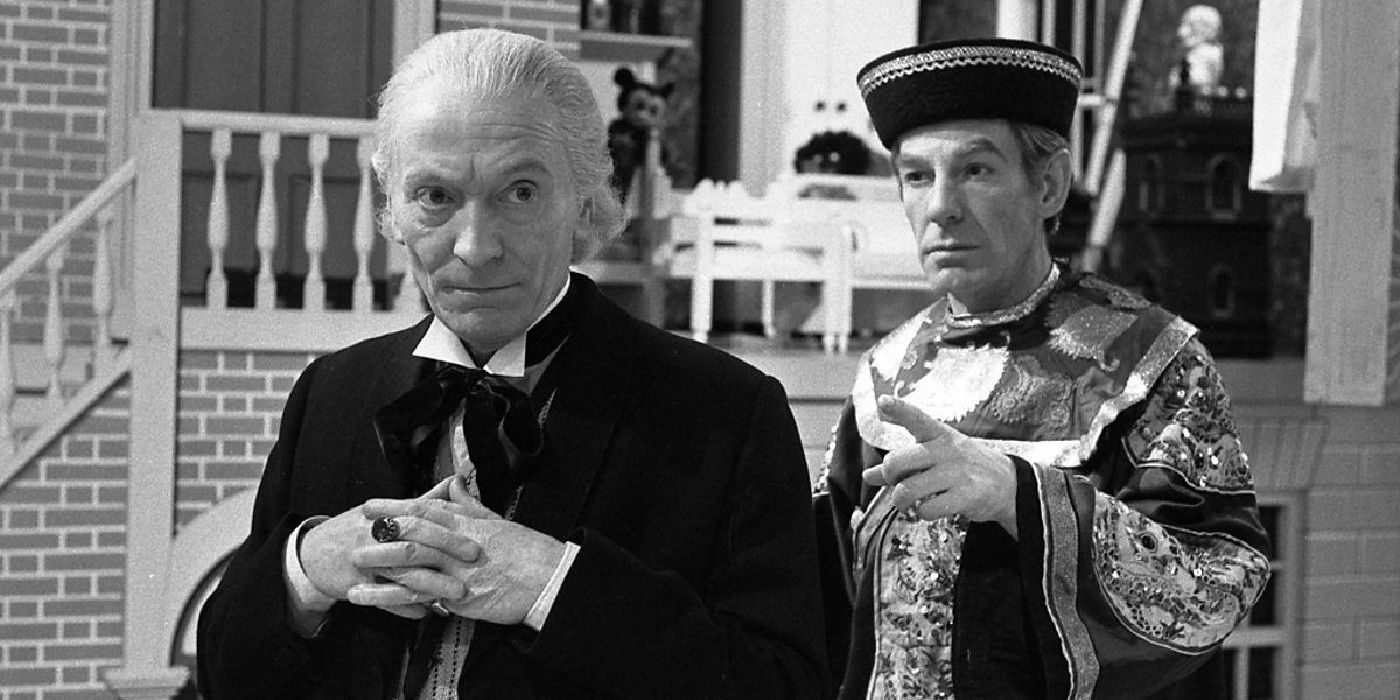
Despite being primarily associated with Neil Patrick Harris these days, it’s important to note that the Toymaker is one of Doctor Who’s earliest antagonists. Making his debut in 1966, he first appeared opposite the First Doctor in a serial called “The Celestial Toymaker,” played by Michael Gough. This serial, unfortunately, is mostly lost now. From the start, the Toymaker displayed a formidable power: he has the ability to make anything happen within the confines of a game.
Regardless of his extraordinary powers, he remains subject to the regulations within the games that he passionately engages with. This characteristic can be seen as a weakness in “The Giggle”, but it also demonstrates resilience. The games may necessitate skill or simply rely on luck, and in either case, he’s exceptionally skilled because of his extensive experience spanning millennia. In situations where luck is paramount, history has shown that fortune often favors him. However, there exists a single deity from the established Pantheon who surpasses the Toymaker in power.
Sutekh, God Of Death
The One Who Waits deceived the Doctor like no villain before or since
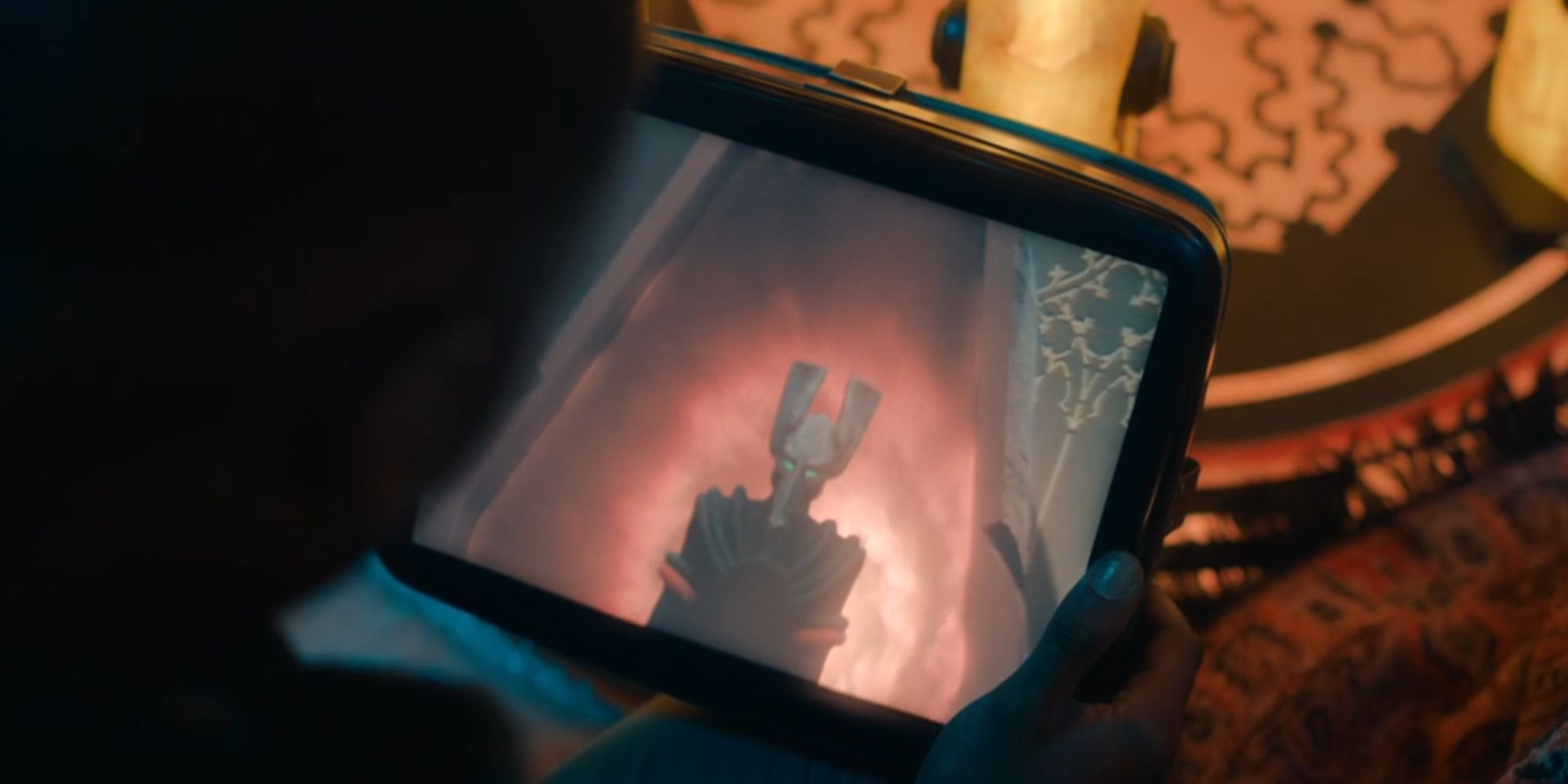
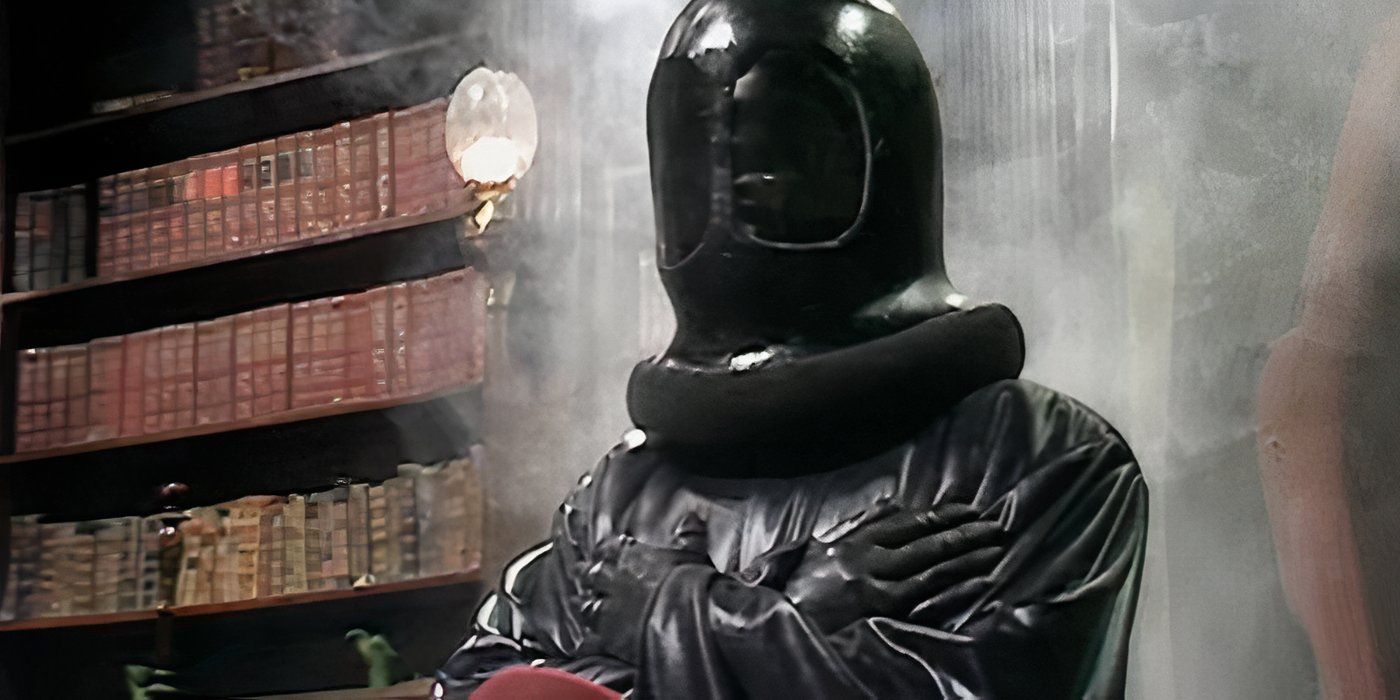
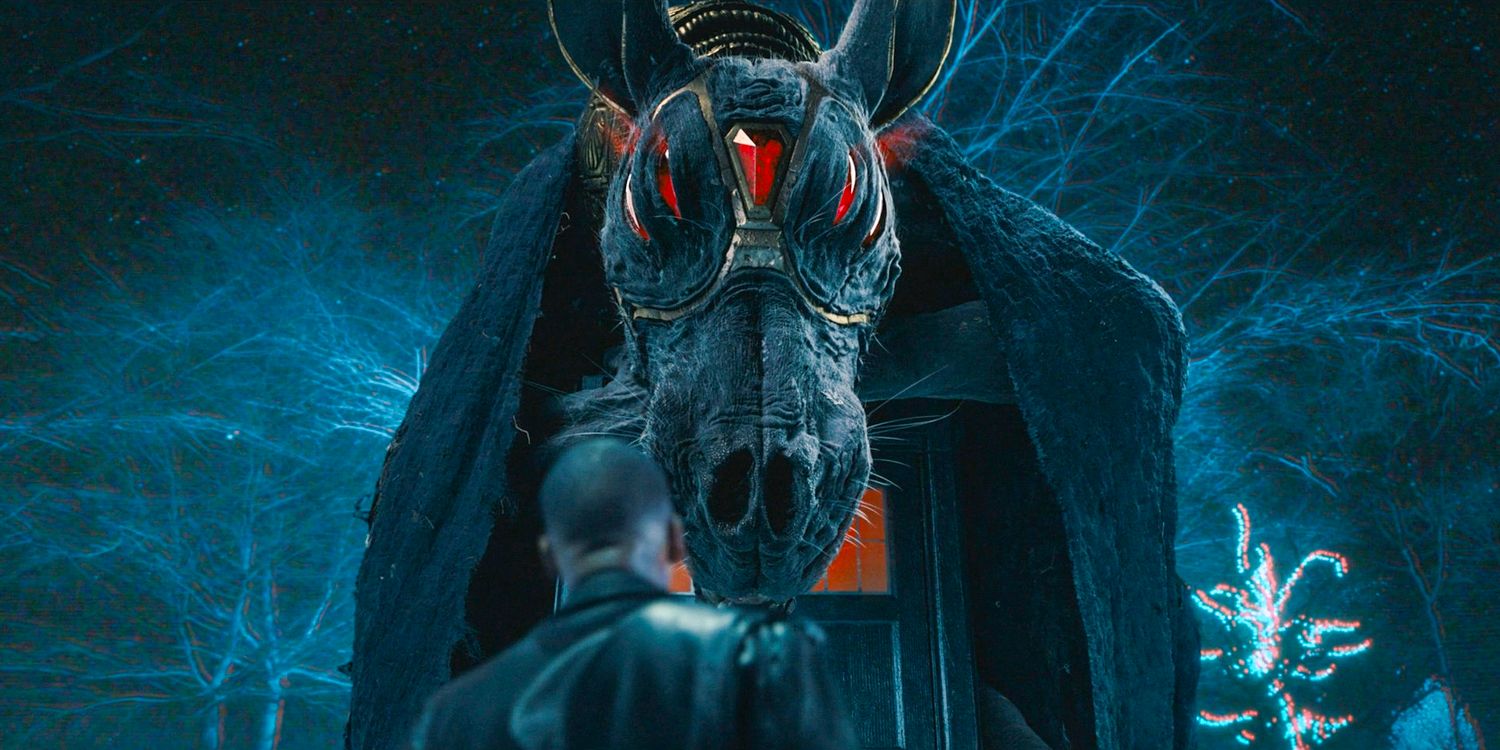
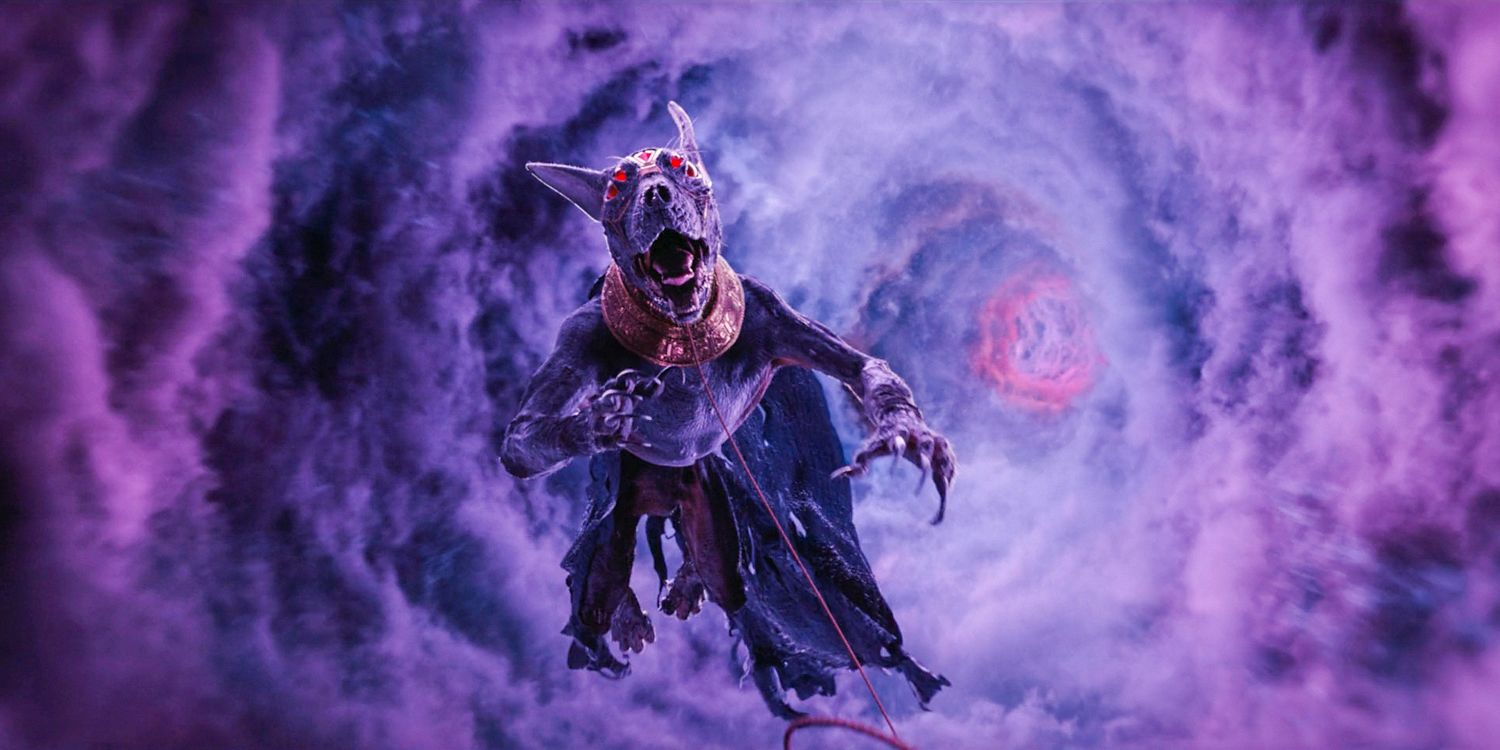
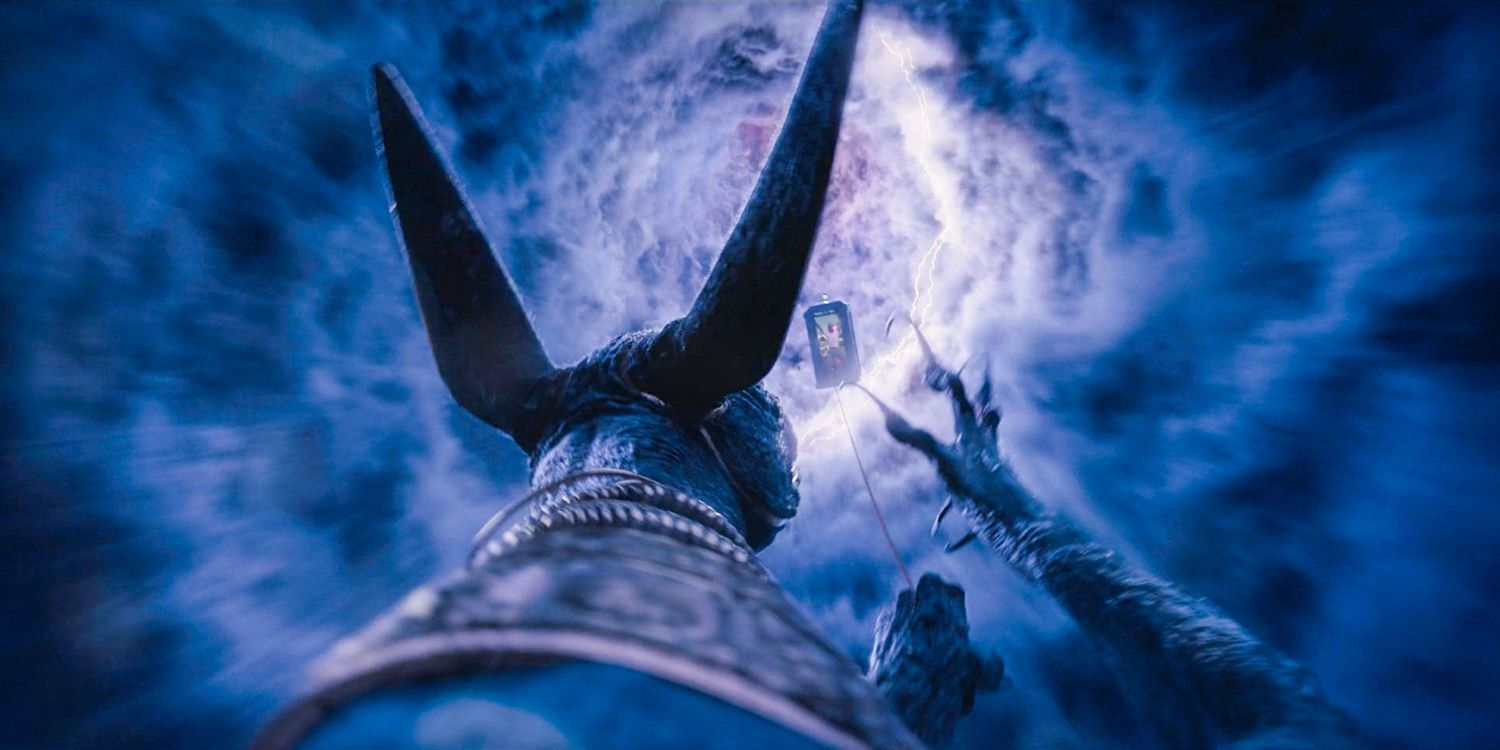
In 1975, Sutekh first appeared as a foe to Tom Baker’s Fourth Doctor in “The Pyramids of Mars.” Originally conceived as an alien rooted in Ancient Egyptian lore, his reappearance in season 14 of Doctor Who elevated him to the leader of the Pantheon. He was often referred to as “The One Who Waits” prior to the grand unveiling. Initially seeming weak in “The Pyramids of Mars,” Sutekh’s defeat was merely temporary, as he proved shrewd enough over centuries to outmaneuver the Doctor.
Sutekh secretly boarded the TARDIS in a previous instance, and his reappearance during “The Legend of Ruby Sunday” in season 14 signified his second try at a scheme that The Doctor had thwarted long ago. What’s particularly concerning is that this time he was successful, and his Destructive Wave left the universe virtually destroyed for an extended period until Thirteen managed to restore it. Despite Sutekh apparently being permanently deceased, we know from past experiences that Doctor Who has a knack for making unexpected returns.
Read More
- Clash Royale Best Boss Bandit Champion decks
- Vampire’s Fall 2 redeem codes and how to use them (June 2025)
- World Eternal Online promo codes and how to use them (September 2025)
- How to find the Roaming Oak Tree in Heartopia
- Mobile Legends January 2026 Leaks: Upcoming new skins, heroes, events and more
- Best Arena 9 Decks in Clast Royale
- ATHENA: Blood Twins Hero Tier List
- Clash Royale Furnace Evolution best decks guide
- Brawl Stars December 2025 Brawl Talk: Two New Brawlers, Buffie, Vault, New Skins, Game Modes, and more
- What If Spider-Man Was a Pirate?
2025-04-25 14:58